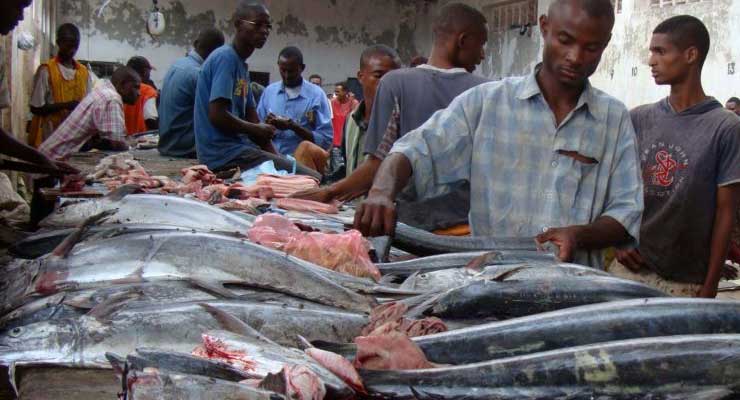
Illegal fishing is on the rise again in the recovering nation of Somalia. This comes as a surprise for many observers in the maritime industry and other UN agencies monitoring the situation of the coast of Somalia closely.
Somalia is rich in marine life fisheries that have attracted many illegal fishing operations. This increasingly widespread practice has the disastrous effect of depleting the poor nation’s food supply.
These illegal fishing boats use and employ highly sophisticated and deadly effective fishing technology which are banned at some countries like bottom-trawling. Vessels from far away countries like Iran, Yemen, Thailand, Spain, Indonesia and Vietnam come into the territorial waters off the Somalia coast to deplete the resources of this recovering nation to the last drop.
Iran is particularly active in Somalia’s waters with its fishing trawlers operating 24/7 in violation of the fishery harvesting practices meant to ensure a healthy fish population. The Iranian government should inform its citizens of a possible backlash if they continue this illegal, unregulated and unreported overexploitation of Somali resources.
 Illegal fishing worldwide has caused losses estimated around $23 billion dollars a year and majority of this illegal fishing takes places within the territorial waters of Somalia. This is a daylight robbery of the resources of Somalia and amounts to environmental crime.
Illegal fishing worldwide has caused losses estimated around $23 billion dollars a year and majority of this illegal fishing takes places within the territorial waters of Somalia. This is a daylight robbery of the resources of Somalia and amounts to environmental crime.
Illegal fishing trawlers have a strong economic incentive — many species of Somali fish, particularly those that have been over-exploited and are thus in short supply, are of high value. Illegal, unreported and unregulated (IUU) fishing can have a significant impact on the sustainability of both the targeted species and the ecosystem. Fishing generally has the capacity to damage fragile marine ecosystems and vulnerable species such as coral reefs, turtles and seabirds.
Many species of marine fish in Somali waters are currently endangered due to overfishing and overexploitation by foreign trawlers operation inside the Somali waters. Furthermore, this illegal fishing will reduce future productivity and biodiversity, thus exacerbating imbalances in the ecosystem which then lead to reduced food security in Somali communities that are heavily dependent on fish as a source of animal protein.
Somalia’s Puntland region is currently infected with this illegal fishing curse and places such as Eyl and the Qardho coast areas have experienced a huge increase in this illegal business even while the navy of NATO is present. NATO is either unaware of or keeps a blind eye to the illegal fishing. It is today the responsibility of NATO to protect the international shipping industry near Somalia where 65% of ships cross.
Interestingly, the average fishermen in Puntland will earn $30 for fishing a limited number of hours while the foreign trawler can collect up to $250,000 worth of fish of all kinds in just few hours using more advanced (and destructive) technology. NATO should deter the illegal fishing trawlers and hand over the criminals for questioning to the Mogadishu authorities or the Puntland regional administration in Garowe.
A temporary solution is to confiscate illegal trawlers and put the illegal fishermen on trial while launching discussions with their respective governments of what to do with the guilty. Those who broke laws should be accountable for their crimes in the sea and sentences should be equivalent not to the value of the fish stock they harvested but to the overall capacity of the trawler and the environmental damage and degradation they have caused to the marine life in Somalia.
On the larger scheme of things, the international community and friendly countries like Turkey, the USA, Great Britain, Japan, South Korea and Germany should provide the recovering yet progress-making government of Somali President Hassan Mohamud with patrol vessels that can protect the exclusive economic zone of Somalia. Currently standing at 200 nautical miles according to the United Nations Convention of the Law of the Sea, this aid will bring peace, stability and development to Somalia and create thousands of job for local fishermen. What is more, Japan which is a great civilization with great fishing history can help Somalia by providing the local fishermen with Japanese fishing boats, vessels and trawlers in which the Somali people, recovering from 25 years of chaos, will forever be grateful. I personally appeal to the Japanese Prime Minister Shinzō Abe in this regard.
Leave a Reply